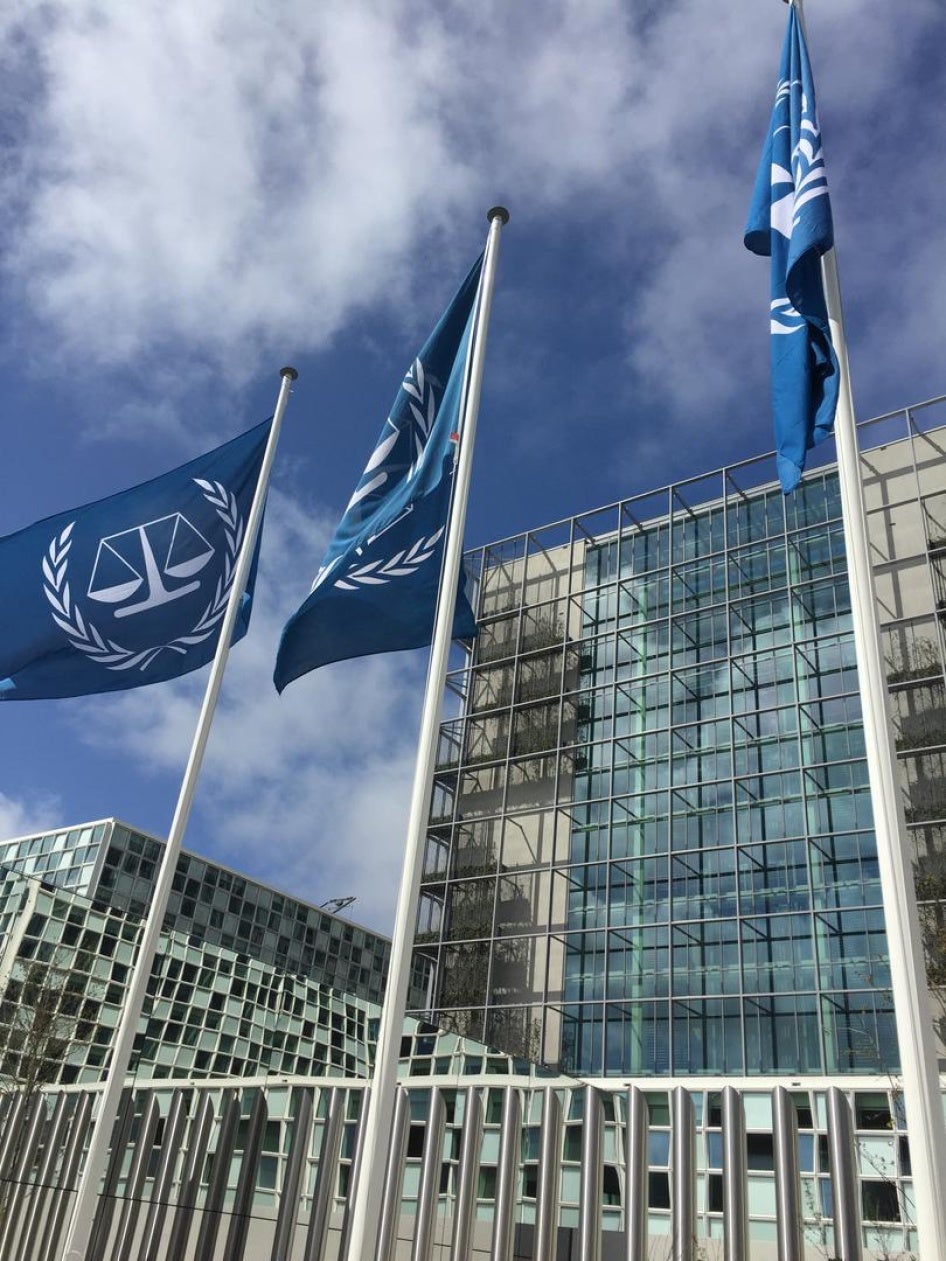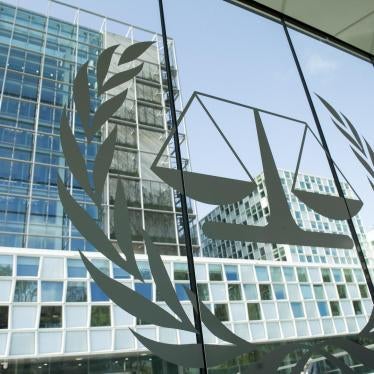July 17, the Day of International Criminal Justice, is the anniversary of the Rome Statute, which paved the way for the creation of the International Criminal Court (ICC).
Anniversaries are often cause for celebration, but the ICC—the world’s only permanent tribunal set up to try atrocity crimes—is at a crossroads. As the court hits its stride 18 years after the Rome Statute and 13 years into operation, a weak political climate on human rights threatens to undercut its role.
The court has issued only four verdicts, but they have become increasingly significant. The latest, the conviction of a former Congolese vice-president for murders and rapes by rebel fighters under his command, should send a powerful message to other military commanders. Trials with other higher-profile accused—including the former president of Côte d’Ivoire—are underway or will start later this year.
But the power of the ICC’s treaty is also beginning to show.
That treaty allows the ICC prosecutor, if judges agree, to open investigations on the territory of any of the now-124 ICC member countries and to investigate the nationals of these countries.
Recently, the ICC made headlines in the United Kingdom, an ICC member, when the media reported that the ICC prosecutor had decided not to prosecute the former prime minister, Tony Blair, over the war in Iraq. In reality, while the court does not have jurisdiction over the decision to go to war in Iraq, the prosecutor is considering whether to open an investigation into alleged war crimes committed there by U.K. forces and has not ruled out any suspects.
To be sure, there have been major setbacks. ICC cases related to Kenya’s 2007-08 post-election violence collapsed, done in by investigative failures, interference with witnesses, and government obstruction. Court proceedings remain slow, and the institution needs to deepen its impact in local communities. But there is reason to believe that a decade from now the court will have become the indispensable court of last resort that its founders envisioned.
And yet, the post-Cold War optimism that animated projects to consolidate international cooperation and the rule of law in 1998 barely exists in 2016. Crucial international institutions such as the U.N. Security Council are gripped by paralysis, unable to address protracted human rights crises, whether in Syria or South Sudan.
This toughened climate for justice for international crimes has already been at play within Africa. African countries, which witnessed Western inaction in the face of the genocide in Rwanda, were among the court’s earliest proponents. However, once the ICC prosecutor pressed charges against sitting presidents, including Omar al-Bashir of Sudan and Uhuru Kenyatta of Kenya, these leaders and their allies whipped up opposition to the court. They traded on the fact that until this year the court’s investigations were all within Africa, ignoring that the majority were sent to the ICC by African governments.
Many African human rights organizations continue to strongly support the ICC, and have countered the attacks by some African leaders, but this may only be the tip of the iceberg. As the work of the ICC expands to new continents, it will face similar, if not stiffer, backlash from political interests opposed to accountability. The U.S. refusal to prosecute torture by the Central Intelligence Agency demonstrates the entrenched double standards that the very idea of a one-day-universal ICC seeks to upend.
Indeed, it is difficult to imagine the ICC being set up in today’s political climate. One would expect strong efforts by ICC members to preserve what a singular moment in the 1990s made possible: a potentially global court to hold even the most powerful to account.
Some countries have been steadfast in their support even when the political stakes were high. But lately governments can seem to verge on indifference. Some states persist in calls to limit the court’s budget, even when it is clear that the need for ICC action far outstrips its capacity. Many governments have yet to treat the court’s judicial elections with the seriousness they deserve.
The ICC’s managing body of countries has tended toward micromanagement of court administration while devoting fewer resources to enforce the judge’s decisions. Worse, it has been weak in the face of self-serving challenges to the court’s independence. A new test may be looming as the African Union considers asking for significant changes to the treaty—including barring the prosecution of sitting heads of state.
The court’s direction in the years ahead depends in part on continued progress by court officials to strengthen its track record. But it depends even more on whether ICC member governments realize that what they have achieved could all too easily be lost.











